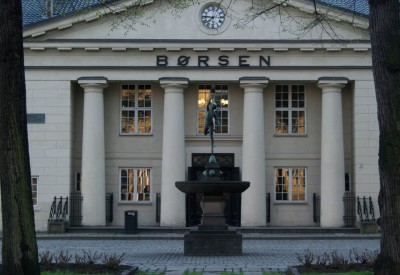UPDATED: Norway’s key financial markets and the value of its currency all took a sharp dive on Friday after British voters decided to leave the European Union (EU). Shares in some of Norway’s biggest companies lost nearly 10 percent of their value when trading opened on the Oslo Stock Exchange, and Finance Minister Siv Jensen said she expects the turbulence to continue in the days to come.

“In the short-term, the (British vote) creates uncertainty about Great Britain’s relations with the rest of the world,” Jensen said at a press conference Friday morning in which she and Prime Minister Erna Solberg shared their reaction to the Brexit vote. She said the uncertainty can prompt companies and households to postpone investments and major acquisitions, and thus hinder economic growth.
The long-term effects are even more uncertain, she said: “We know very little about what alternatives agreements Great Britain can get (with the EU) and how quickly they’ll come in place. This isn’t the time to speculate on that.”
Jensen said that Norway’s finance ministry, financial regulators and central bank were following the situation closely and were prepared to bolster liquidity if necessary. Jensen said Norwegian banks were strong and able to tolerate turbulence in international financial markets.
Worse than expected
Economists’ and financial analysts’ gloomy predictions of what would happen in the case of a so-called “Brexit” (British exit) proved to be true, with reality even worse than expected. The only people cheering in Norway on Friday morning were members of the small farmers-oriented Center Party that’s always been opposed to the EU, along with the lobbying group Nei til EU (No to the EU).
Investors and any Norwegian heading off on holidays abroad had reason to regret the British vote, if only from the standpoint of their own wallets. On Thursday it cost less than NOK 8.20 to buy one US dollar. On Friday morning it cost NOK 8.54.
That’s largely because the price of oil, which still fuels Norway’s economy, fell below USD 50 a barrel again, down to USD 48.51 Friday morning. Norway’s currency is no longer viewed as secure as it was when oil prices were high, and after the British vote, investors were dumping shares in Norwegian companies as well.
“We’re already seeing a mini-crash,” brokerage chief Thomas Breivik at DNB Markets in Oslo told the website for newspaper Dagens Næringsliv (DN), dn.no, even before trading opened on the Oslo Stock Exchange. When it did, share prices plummeted 6 percent, far below even the most negative expectations of analysts.
‘Brutal’
Stock in Norway’s largest bank DNB, metals company Hydro, offshore rig company Seadrill and airline Norwegian Air were all down by nearly 10 percent. Seadrill suffered the worst initial blow, with its shares down 9 percent, while Norwegian insurance company Storebrand was down 8.6 percent and Scandinavian Airlines (SAS) was down 8 percent.
Some of the shares recovered somewhat but Norwegian Air was still down 7.72 percent and DNB by 6.27 percent after nearly an hour of trading. Shares in Statoil, Norway’s largest company, were down 3.97 percent.
The main index of the Oslo Stock Exchange was still down nearly 4 percent after nearly an hour of trading, less than some of the even more dramatic dives on stock exchanges elsewhere in Europe, but severe by local standards.
At the end of the trading day, all five of the most heavily traded Norwegian shares were deeply in the red. Statoil lost 4.54 percent of its value, Marine Harvest 2.03 percent, DNB 6.27 percent, Norwegian Air 9.06 percet and Telenor 4.36 percent. The stock exchange’s index ended Friday down 4.15 percent.
“This is brutal,” Magne Østnor, currency strategist at DNB Markets, told DN, noting that such large changes in market prices for stocks, bonds, commodities and currencies are seldom. “We’re seeing incredible movements. Bank shares are down more than 5 percent in some cases.” DNB fell 6.7 percent when trading opened on Friday.
While Østnor claimed the “brutal” market reaction to the Brexit vote, both in Norway and worldwide, was “what we feared would happen,” other analysts claimed it was much worse. Paul Harper, share strategist at DNB Markets, said he thinks investors were shocked that the British actually decided to leave the EU, by a vote of roughly 52 percent in favour of Brexit.
“This was unexpected for the financial markets, there’s no doubt about that,” Harper said.
Another shock came when British Prime Minister David Cameron announced he would resign, adding to the political uncertainty. Even many of those favouring a Brexit had wanted him to stay on to provide some stability for the British government and to help negotiate a new market access agreement for the UK. Cameron’s resignation means someone else will need to take on that onerous task, adding to the uncertainty for the prospects of Norway’s own agreement with the EU and that Norway will need to strike a new trade deal with Great Britain itself.
newsinenglish.no/Nina Berglund

